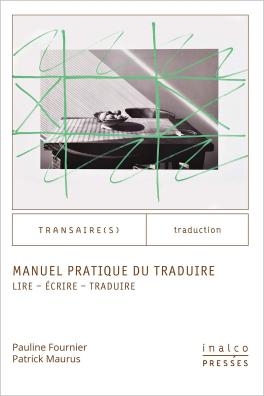
Practical Textbook for Translating
Reading - Writing - Translating
Series : TransAire(s)
Subject : Translation
20 €
Presentation
“Practice of translating” is the title of a third seminar, following “Theory of translating” and “Criticism of translating”. The radical distinction between the three is of course in part artificial. However, they each served to name a seminar and underline a form of progression (desired and desirable) in learning the profession of the translator – once it was accepted that said profession required training. Firstly, this means understanding the issue (languages are not translated; rather, literatures in a language). The translated literature must conserve its characteristics in French – for the role of the translator is not to produce good, fluent French. Secondly, one must learn to read translated texts as translated texts (which critics almost never do). And thirdly, one must write, on the basis of existing translations.
This book, or textbook, results from a position chosen by translators: it builds on reflections on the part of translator teachers, on the one hand, and the desire to make the participants in the seminar translators, on the other.
These reflections on practices (which can be very diverse given the literary fields considered) did not lead us to propose a tool-kit or a catalogue of responses, tips and tricks. We examined a series of practical issues arising from the texts (the translator is, with the author, the only person to know every word of a book) in order to sharpen the eye and adopt an attitude. Future translators will therefore be called upon to develop a similar approach on the basis of collective inquiry. Far from us to try to produce a one-size-fits-all solution. But at the same time, we equally refuse to infer that everything is relative and equivalent and that all solutions are equal. Acceptable solutions are those dictated by the text to translate.
Authors
Pauline Fournier is a lecturer in Slovenian at Inalco, where she has been teaching since 2011 and defended her doctorate in Slovenian language and literature in 2009, under the supervision of Antonia Bernard. She is a member of the CREE laboratory and an associate member of CERLOM. Her research centres on the fields of literature and translation.
Patrick Maurus is a qualified teacher and holds a doctorate in French literature (popular literature, particularly novels) and Korean literature (modern poetry and nationalism). He currently teaches at Inalco and is a translator and the director of the Centre for Independent Research into the Koreas. He edits the journal Tangun.
191 pages
16 x 24 cm
Publication: 27/09/2019
ISBN: 9782858313297